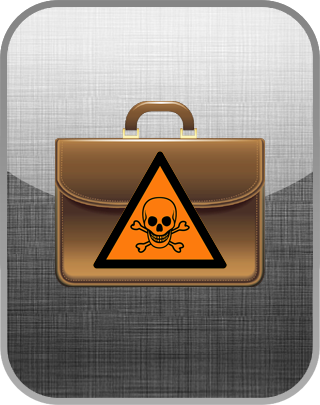Academically reviewed by Dr. Matthew Arthur-Gray, Ed.D.
Toxic Workplace Test
Based on the standards of Mental Health America
Research by Mental Health America (MHA) has shown that most Americans face unfair treatment at work and hostility in the workplace to at least some degree. Results also indicated that these factors have a negative impact on the family and private life of employees and lead to trouble concentrating at work.
To take the toxic workplace test, indicate your level of agreement or disagreement with each of the following statements below.
Question 1 of 20
My employer promotes safe working conditions (i.e., does not expect us to come to work in unsafe situations like driving through bad weather or in situations that would expose us to sickness).
| Disagree | Agree |
NEXT
The IDRlabs Toxic Workplace Test (IDR-3TWT) was designed by IDRlabs. The IDR-3TWT draws upon the “Mind the Workplace” report on workplace mental health, performed and written by Mental Health America (MHA). The IDR-3TWT is not affiliated with any specific researchers in the field of organizational psychology, or any associated researchers and organizations.
Mental Health America (MHA), a non-profit organization, published the results of their online survey on workplace mental health in 2015. Results showed that, among respondents, unfair treatment at work and workplace hostility were issues faced by most respondents to some extent. Many also reported negative impacts on family and private life and trouble concentrating at work due to the workplace itself (rather than due to other factors). It must be noted that workplace satisfaction differed greatly among industries.
The MHA survey was an online study, voluntarily taken by respondents, so there was most likely a bias towards higher percentages of workplace mental health problems among respondents. Nonetheless, the consequences of an unhealthy, unsupportive work environment were found to be grave: anxiety, stress, depression, and productivity losses or relationship problems as a result of this. Stressed-out employees quitting their jobs and being less productive should raise the alarm to employers as well.
This test was constructed with the previous factors in mind, and it will allow you to find out how toxic your workplace is. Here, we define a “toxic workplace” as one that causes mental health issues in workers. These mental health symptoms may be the result of issues such as a negative, unsupportive atmosphere, unfair treatment, or excessive workloads. A “healthy workplace” is a workplace that does not cause these issues, that is, a workplace characterized by mutual trust, good faith, and good working conditions. We consulted the “Mind the Workplace” survey by MHA as a solid basis for our test items. Please remember that this test is merely intended for educational purposes. IDRlabs and the IDRlabs Toxic Workplace Test are independent of any researchers or HR companies.
Keep in mind that online quizzes and tests, such as our Toxic Workplace Quiz, are merely a first glance at the construct being examined, and that these tests cannot provide truly accurate assessments of workplace healthiness. It would require the informed and impartial judgment of one or more organizational psychology professionals to make more definitive claims about your workplace’s healthiness or toxicity.
As the publishers of our free online Toxic Workplace Quiz, which lets you find out how toxic your workplace is according to MHA standards, we have undertaken great efforts to ensure test validity and reliability, by subjecting the test to statistical controls and validation. Nonetheless, free online quizzes such as our Toxic Workplace Test do not provide certified or qualified recommendations or assessments of any kind; we provide this test “as-is”. To find out more about any of our online tests and quizzes, please review our Terms of Service.
References
- Mental Health America. (2017): “Mind the Workplace”
- Kusy and Holloway. (2009): “Toxic Workplace!: Managing Toxic Personalities and Their Systems of Power.” Jossey-Bass.

